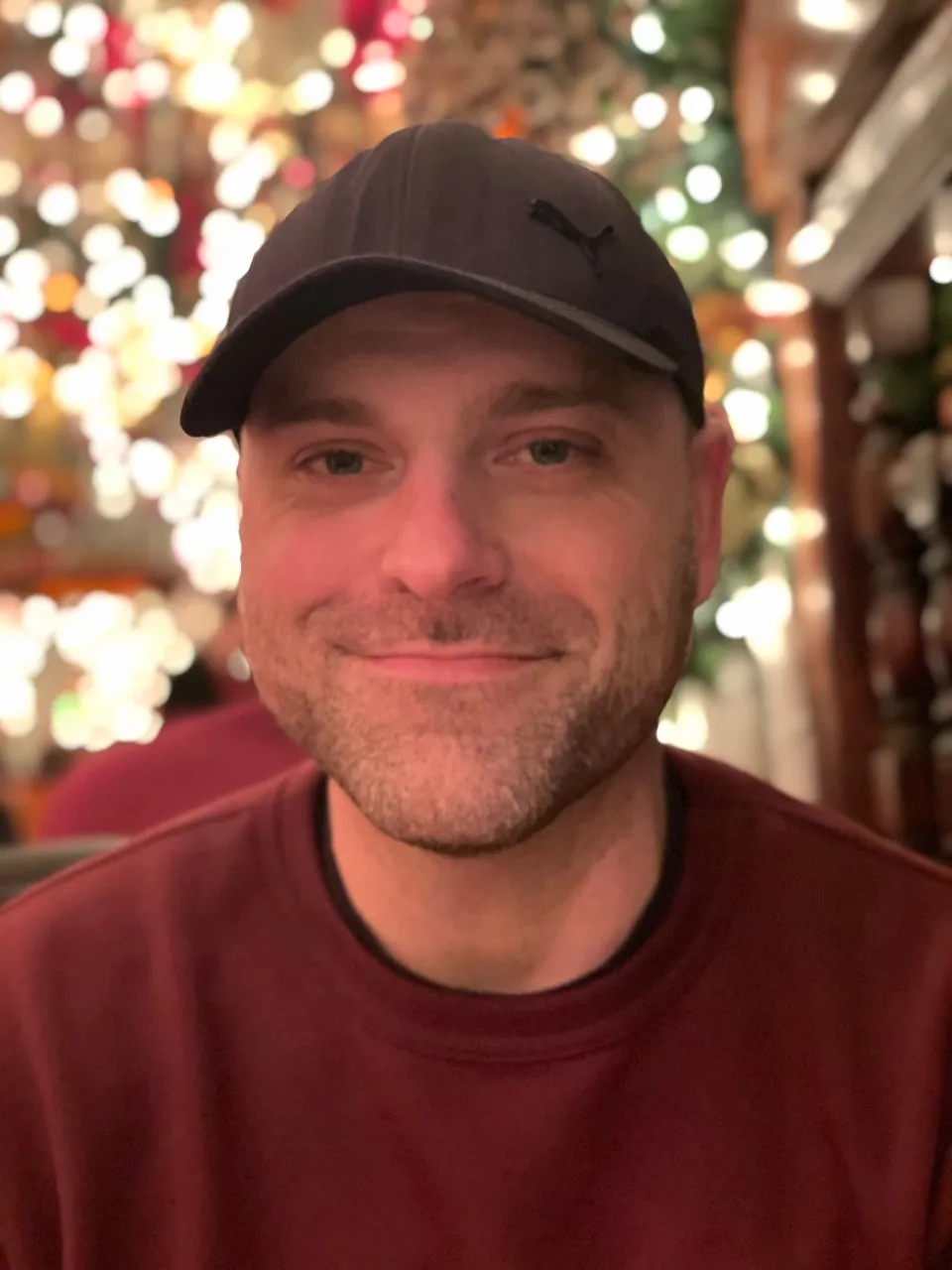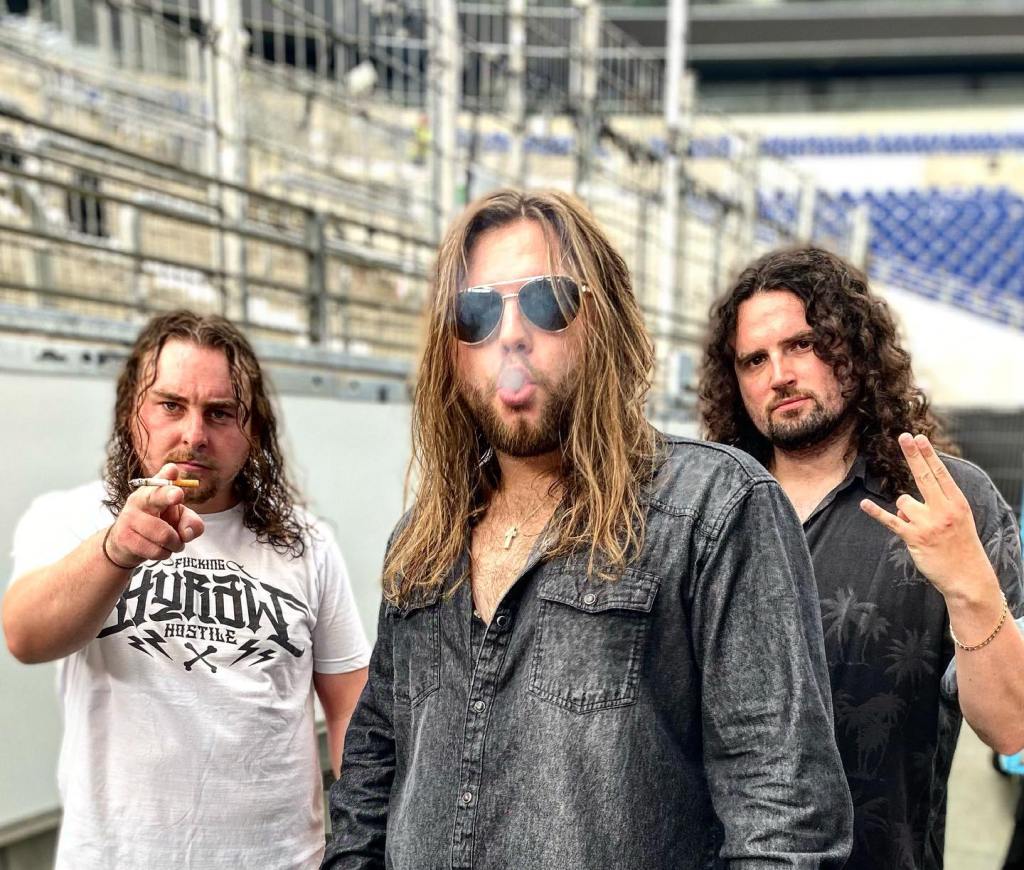
All images courtesy of Tristan Thomas/Getty Images

By Andrew Daly
[email protected]
Since bursting upon the duck-and-cover business of hard rock and heavy metal in 2016, Tristan Thomas has barnstormed the industry. Having already tasted Florence Black’s impending zenith, make no mistake – the Les Paul-wielding South Wales native wants more.
The rock ‘n’ roll universe is a fickle beast, but some six years ago, the golden catapult came calling. And so, it was with fire in their eyes and rage in their bellies that Thomas and company made casualties of their doubters with the release of Florence Black’s inaugural EP, Florence Black.
Success came hard and fast for Florence Black, and with that came more music, a cover of Budgie’s iconic “Breadfan,” and mountains of six-string related praise for Thomas, aka this generation’s most up-and-coming Guitar God. And while some units would buckle, the young power trio – which also features Perry Davies on drums and Jordan Evans on bass – sneered in the face of their residual doubters.
Thomas, Davies, and Evan’s collective attitude, confidence, and undying swagger manifested in huge dividends by way of 2021’s cataclysmic long-player, Weight of the World. The album’s wake brought more critical and commercial applause, with a windfall of acclimation that can only be described as herculean. It’s the big time, baby.
Through it all, though, despite his exploits and continually elevating stature amongst his peers, Thomas remains stonefaced toward the idea of grandiosity. Forget that his music elicits visions of whimsical bombast akin to a bastard child born to Led Zeppelin and the Foo Fighters. And ignore the idea of grand slam guitar wizardry, which encompasses Thomas’s classic yet forward-thinking style. Instead, we as fans – not unlike Thomas, Davies, and Evans – need only to look toward the future because, for Florence Black, the future is radiantly bright.
Taking a moment to bask the spoils of his patience and perseverance, Tristan Thomas logged on with VWMusic to recount his origins with the guitar, the formation of Florence Black, his love for Marshall stacks, and why Gibson’s iconic single-cut is the perfect guitar for him.
What first led you to pick up the guitar? Do you remember your first guitar?
My dad would always play the old classic rock bands in his van on a cassette, and I used to absolutely love it. One day he brought a guitar home, and I couldn’t put it down. I remember him bringing home a fender Squier tobacco sunburst, so I believe that was my first guitar.
What was the first song/riff you learned?
I started off having guitar lessons when I was 11 years old with a guy named Tony Phillips from Aberfan. I then went on to do my grade 6 with another amazing teacher called Lee Batten and then just started teaching myself by watching videos of the greats and learning their licks. But the first riff I learned was obviously Deep Purple’s “Smoke on the Water.” [Laughs]. But the first song which made me really fall in love with the guitar was “Creeping Death” by Metallica.
What sort of scene were you exposed to growing up? Can you recall your first gig?
To be honest, I grew up with a lot of R&B and pop music. But I always listened to rock, too, because of my dad. I was in a band from the age of 11, and always being around older people in bands, we learned a lot about the older rock scene. As for my first gig, I remember it well because it changed my life forever. It was Status Quo live in the CIA in Cardiff. To this day, I find myself going back and listening to their music—one of, if not my favorite, band ever.

All images courtesy of Tristan Thomas/Getty Images
How did Florence Black form? What was your intention and vision for the band going in?
Me and the drummer Perry [Davies] used to jam with each other since we were around 11 years old, then we met Jordan [Evans], the bass player, in high school, and it all started from there. It actually started during a band jam night, they were asking people to get up on stage to play, and we three looked at each other and went for it. We just wanted to gig everywhere and anywhere, live and loud. We started playing covers by Foo Fighters, Black Sabbath, etc., all the big iconic rock bands. Then we started writing music.
What led to the decision to operate as a power trio? Were you heavily influenced by that configuration growing up?
It just happened; I started backing singing in a couple of different bands before we got together. Then thought I’d give it a go. And it’s a lot easier to work with three people than four or five. [Laughs]. Bands like Budgie, for example, have been massive influences on me. Budgie’s sound was so different it really connected with me at a young age, and Tony Bourge’s guitar riffs ignited my love for big riffs.
Describe your approach to songwriting. How is that informed by your guitar style?
I usually always write the riff or the music first. Then the vocal melody comes after. I usually have around ten different vocal melodies over the track, then pick my favorite one or the one that best suits the song.
What gear, pedals, amps, and guitars are you using today?
I’ve had the same amp and guitar since I was around 14: a Marshall TSL JCM 2000 head and the Marshall 1960s cab. I’ve got a Gibson Les Paul my Nan bought me before she passed away. That will never leave my possession. I always have people saying my tone is great, and I’ve always loved it, so if something is not broken, don’t fix it!
A lot of artists are going with Kemper’s live over traditional amp setups. Where do your loyalties lie, and why?
They are very impressive amps, but there’s just something about plugging into a real Marshall valve amp, letting it warm up, and hearing the valves crunching through the speakers. I love the look, the sound, the quality, and everything about my Les Paul, and I feel that good old Marshall amps complement them best.

All images courtesy of Tristan Thomas/Getty Images
How does your emotive intention change while playing guitar live vs. in the studio?
The studio is where I spend most of my life, but there’s nothing more special than playing songs you’ve written to a room full of people and them singing it back; that’s what makes it all worthwhile.
What are your thoughts on the use of backing tracks in the live setting? Is it cheating the fans?
I don’t think it’s cheating, but it’s not as authentic as seeing a band and hearing what they are playing on that stage. We’ve never used tracks live, and I can’t see us using them anytime soon. Only intro tracks and a track in between the set to break it up a bit.
What do you feel Florence Black needs to do to experience longevity in rock music?
Just keep doing what we’re doing, work hard, and stay true to ourselves. Oh, and release the greatest 2nd album of all time!

All images courtesy of Tristan Thomas/Getty Images
– Andrew Daly (@ajdwriter88) is the Editor-in-Chief of www.vwmusicrocks.com and may be reached at [email protected]

The best ever 2nd album is incoming I feel!